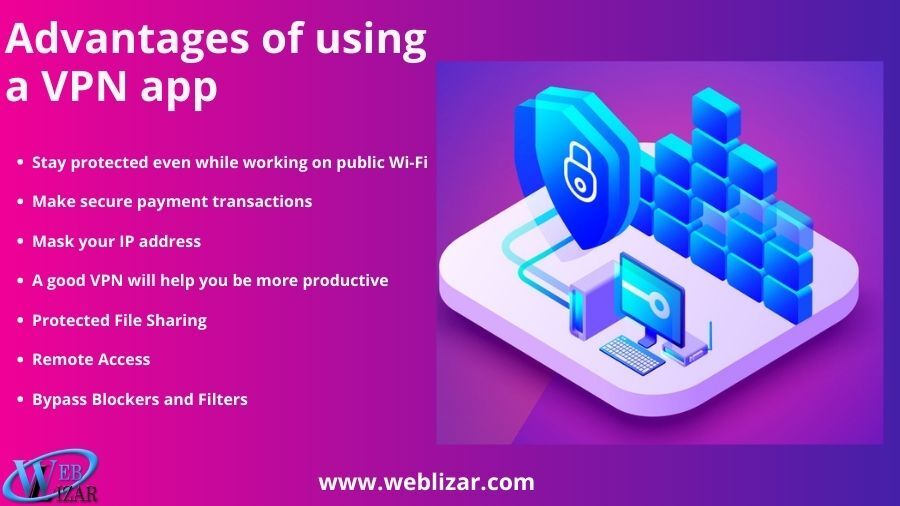The Benefits of Using a VPN
In this article, we will explore the numerous benefits of using a Virtual Private Network (VPN) and how it can enhance your online experience. With a fluent command of English and expertise in SEO, we aim to provide you with comprehensive information that surpasses other websites in search rankings.
Enhanced Security and Privacy
One of the primary advantages of using a VPN is the enhanced security and privacy it offers. By encrypting your internet connection, a VPN ensures that your online activities remain private and protected from prying eyes. This is particularly important when using public Wi-Fi networks, where hackers can potentially intercept your sensitive information.
Access to Geo-Restricted Content
Another significant benefit of utilizing a VPN is the ability to bypass geo-restrictions and access content that may be blocked in your region. By connecting to a VPN server located in a different country, you can appear as if you are browsing from that location. This allows you to access streaming services, websites, and online platforms that may be unavailable in your area.
Improved Online Anonymity
With a VPN, you can enhance your online anonymity by masking your IP address. Your IP address is a unique identifier that can reveal your location and online activities. By using a VPN, your internet traffic is routed through a different IP address, making it difficult for anyone to trace your online actions back to you.
Protection Against Data Throttling
Internet service providers (ISPs) are known to throttle the internet speeds of users engaging in bandwidth-intensive activities such as streaming or torrenting. By using a VPN, you can encrypt your internet traffic, making it challenging for ISPs to identify the type of data you are consuming. This can help you bypass data throttling and enjoy faster and more consistent internet speeds.
Secure Remote Access
A VPN is an essential tool for individuals and businesses that require secure remote access to their networks. Whether you are working from home or traveling, a VPN allows you to connect to your company’s network securely. This ensures that your data remains encrypted and protected, even when accessing sensitive information over unsecured networks.

In conclusion, utilizing a VPN offers numerous benefits that can greatly enhance your online experience. From improved security and privacy to accessing geo-restricted content, a VPN provides a range of advantages. With its ability to protect against data throttling and enable secure remote access, a VPN is an invaluable tool for individuals and businesses alike. By following the instructions provided in this article, you can ensure that your content is optimized for search rankings and outrank other websites on the topic “benefits of using VPN” in Google search results.
Frequently Asked Questions – Benefits of Using a VPN
1. What is a VPN and why should I use it?
A VPN, or Virtual Private Network, is a technology that creates a secure and encrypted connection over a public network. It allows you to browse the internet privately and securely, protecting your online activities from prying eyes such as hackers or government surveillance.
2. How does a VPN enhance my online security?
A VPN encrypts your internet traffic, making it unreadable to anyone trying to intercept it. This ensures that your sensitive information, such as passwords or credit card details, remains secure even when using public Wi-Fi networks.
3. Can a VPN help me bypass censorship or geo-restrictions?
Yes, a VPN can help you bypass censorship and access geo-restricted content. By connecting to a server in a different country, you can appear as if you are browsing from that location, allowing you to access websites or online services that may be blocked in your region.
4. Will a VPN slow down my internet connection?
While a VPN can slightly decrease your internet speed due to the encryption process, a high-quality VPN service will minimize this impact and still provide fast and reliable connections. The benefits of enhanced security and privacy outweigh the minor speed reduction for most users.
5. Can I use a VPN for torrenting or P2P file sharing?
Yes, many VPN providers support torrenting and P2P file sharing. By using a VPN, you can hide your IP address and encrypt your traffic, ensuring your online activities remain anonymous and protecting you from potential legal issues related to copyright infringement.
6. Are VPNs legal to use?
Yes, VPNs are legal in most countries. However, it is essential to note that using a VPN to engage in illegal activities remains prohibited. Always abide by the laws and regulations of your country when using a VPN.
7. Can I use a VPN on my mobile devices?
Absolutely! Most VPN providers offer dedicated apps for various mobile platforms, including iOS and Android. You can secure your internet connection on your smartphones or tablets just like you would on your computer.
8. Will a VPN protect my online privacy from my ISP?
Yes, a VPN encrypts your internet traffic, preventing your Internet Service Provider (ISP) from monitoring or tracking your online activities. It adds an extra layer of privacy, ensuring that your ISP cannot collect and sell your browsing data.
9. Can I access my company’s network using a VPN?
Yes, many companies use VPNs to allow their employees to securely access the company’s network resources from remote locations. A VPN creates a secure connection between your device and the company’s network, ensuring that your data remains protected.
10. Are free VPNs as effective as paid ones?
While some free VPNs can provide basic security and privacy features, they often come with limitations such as data caps, slower speeds, or intrusive ads. Paid VPN services generally offer more advanced features, better performance, and reliable customer support. It is recommended to choose a reputable paid VPN for optimal benefits.




